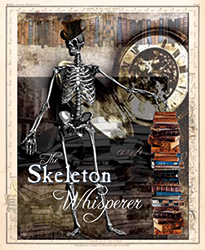Recently, I hired a researcher to look for my ancestor in the records of a particular “orphan train” organization. This is my newest theory on where my hardest-to-find fellow may have come from, even if it is only slightly more plausible than “it was aliens.”
I knew it was a long shot going in, so I wasn’t too surprised when the reply came back as “no records found.” The research was apologetic – although it’s certainly not his fault the person I’m looking for isn’t in this collection, he said he hates reporting back with negative results.
I get it. Boy, do I get it. The worst part of my job as a genealogist is coming back to a client and saying “I’m sorry, I haven’t answered your research question.”
Whenever I come up against this, I’m reminded of something Elizabeth Shown Mills said in a lecture. To paraphrase, “our efforts might not find the answer, but we are always furthering the research.”
Step one of the Genealogical Proof Standard is to conduct reasonably exhaustive research. We overturn every stone and flip every page looking for records and evidence that pertain to our research question – often, the result is “nope, they aren’t in this recordset!” It’s easy to view these results in a negative light and it’s understandable to feel frustrated about it.
I just remind myself that I’m actually furthering the research. Every time I get to the end of a deed book or set of marriage records without finding what I’m hoping for, I’ve eliminated an item from my to-do list, added to the pile of reasonably exhaustive research, and -hopefully – get another step closer to finding the records that will help me solve the puzzle.
Want some help finding your next steps? Check out my free worksheet!
